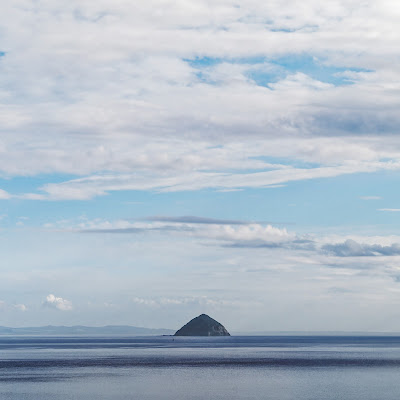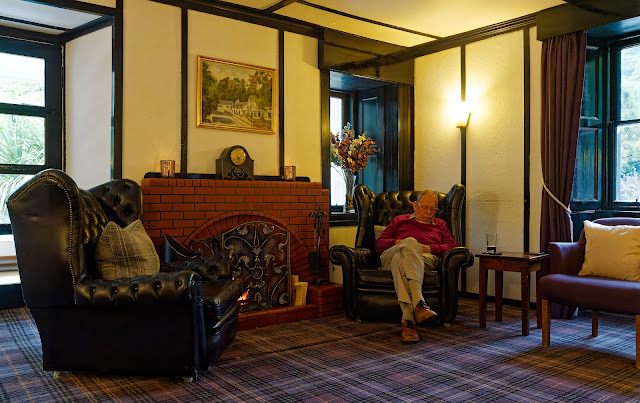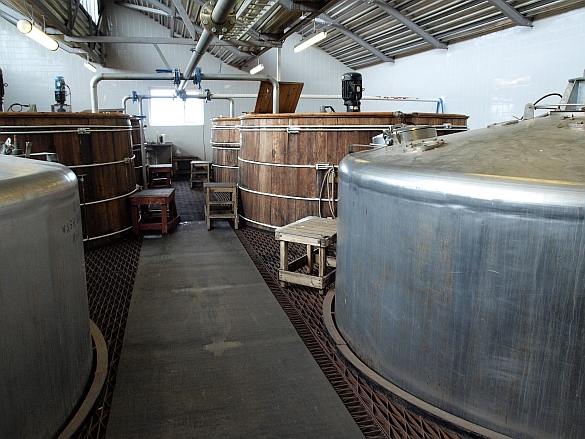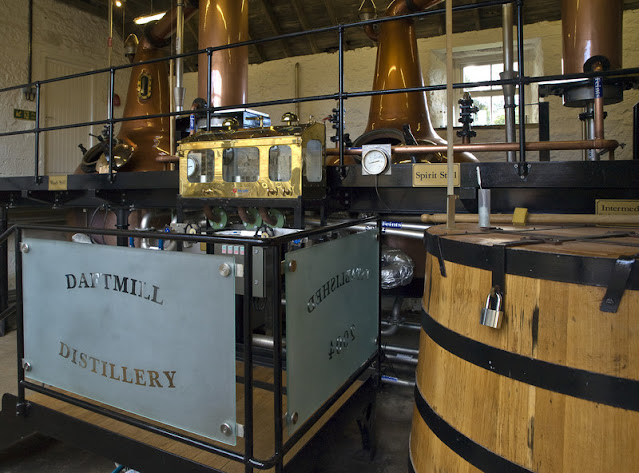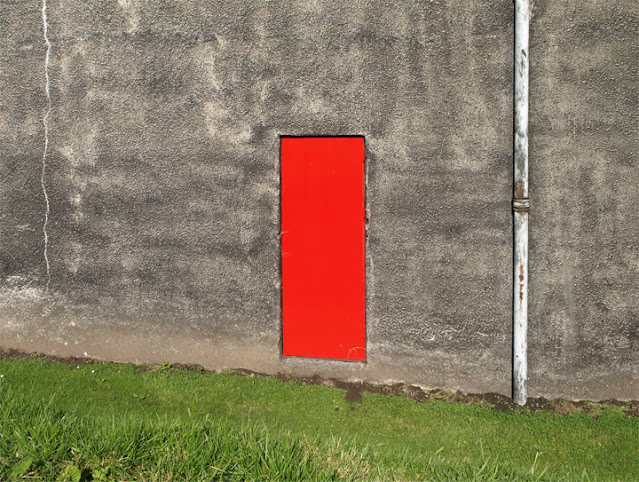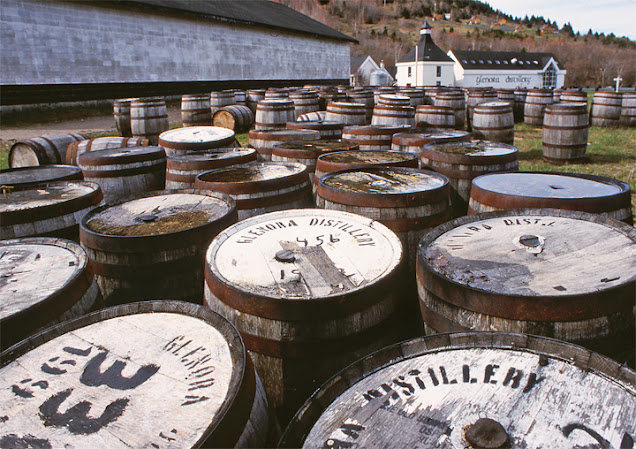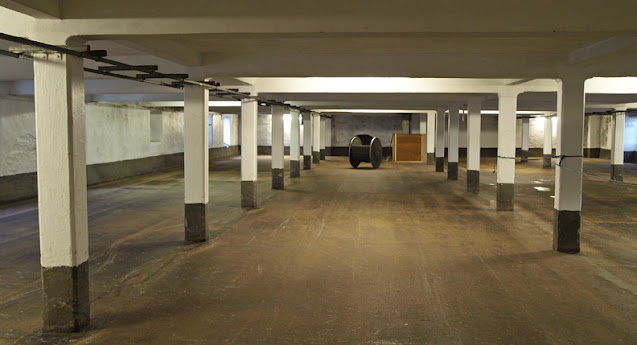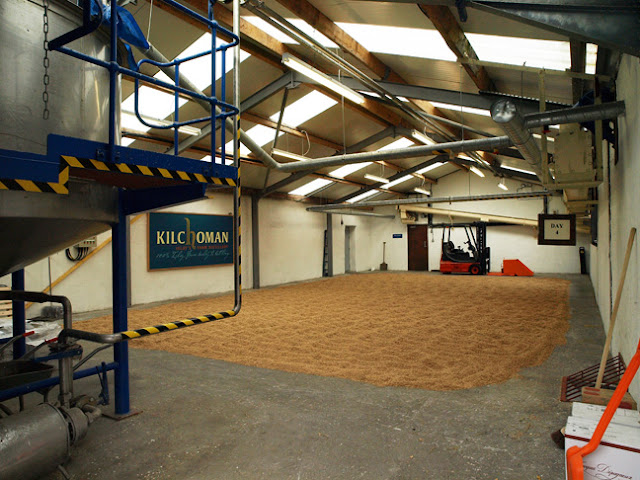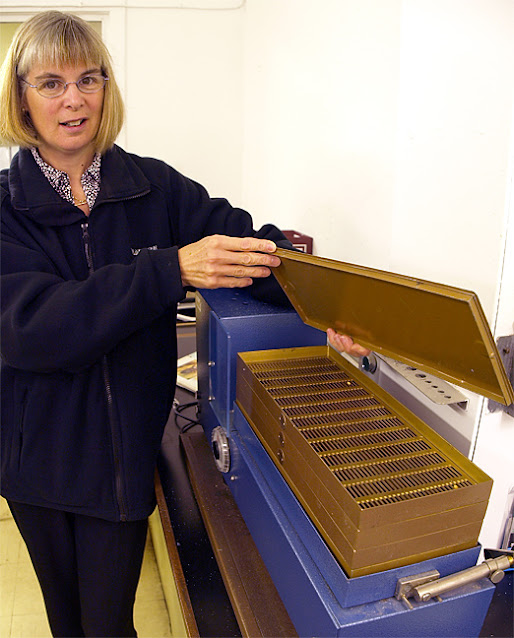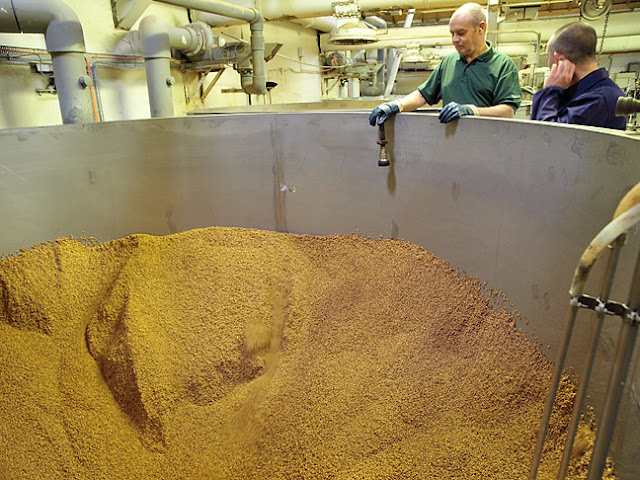While savouring a dram of
Redbreast Irish pot still whiskey, I finish reading
Iain Banks's "Transitions". It gets me thinking about transitions - change, the movement between states. So of course that leads to thinking about malted barley (malting as one of many transitions involved in making whisky, and the fact that most Irish whiskey is made with unmalted barley...just nod and pretend you follow me). Who first figured that barley should go through the extra time, effort, and energy to germinate the grain before using it to distill our favourite tipple? It's a process that is systemically more costly than just using barley reaped and dried straight off the field. Maybe it was one of those serendipitous mistakes - barley stashed under a leaky roof, discovered too late but too valuable to discard...I'm just musing here, I'm sure somewhere out there is an historical explanation.
The first two are a couple photos of barley quietly germinating on the malting floor at
Laphroaig. It's time, labour, and space intensive to malt this way - that's why few distilleries do it for themselves any more. I'm thinking the process was only undertaken after the establishment of distilleries as legal entities able to occupy a relatively large footprint, the first arguably founded sometime during the last quarter of the 18th century. Prior to the luxury of a malting floor, I suggest that most Scotch whisky must have been made with unmalted barley.
I also suggest you pick up one of Iain Banks's works, with or without the M. His "Raw Spirit" got me reading him, and though it is not quite representative of his more widely distributed subject matter the book is a tasty dram, a roadtrip through the landscape of Scotch whisky.
a grain wheelbarrow at Laphroaig used to spread the steeped barley by hand across the malting floor
you've seen a similar image here before - raking the growing barley at
Bowmore so it doesn't mat together into a tangled mess
a motorized barley rake at Laphroaig - undoubtedly a lot easier on the maltman's back!
after two days on the malting floor after three days on the malting floor
the malting floor at
Springbank, Campbeltown
the malting floor at
Kilchoman, Islay
the malting floor at the
Balvenie, Speyside
Slàinte
 The building begins. Looking east towards Jura and the Paps, September
of 2017
The building begins. Looking east towards Jura and the Paps, September
of 2017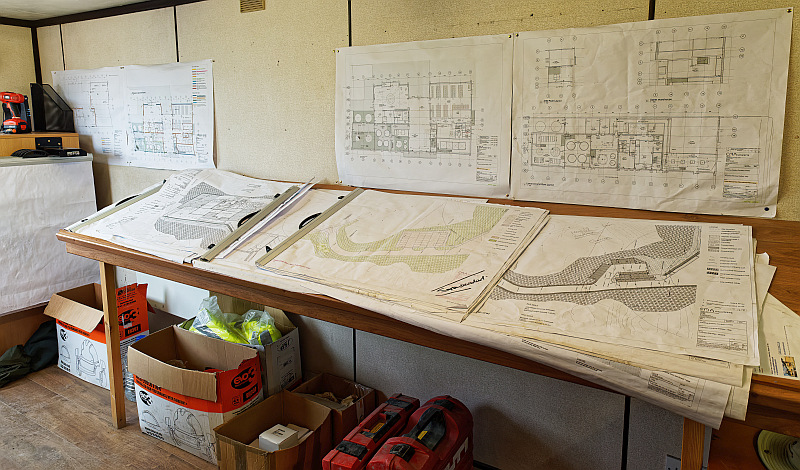 Architectural drawings for the distillery to be
Architectural drawings for the distillery to be
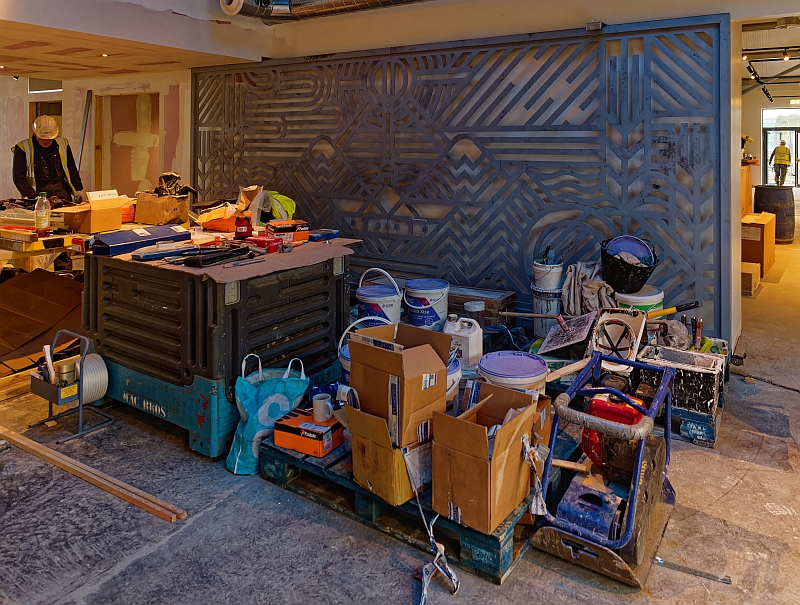
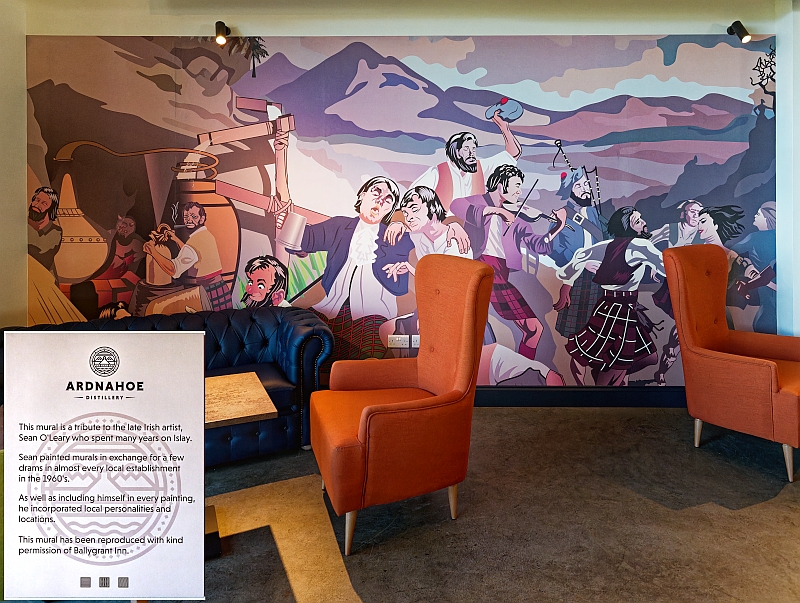

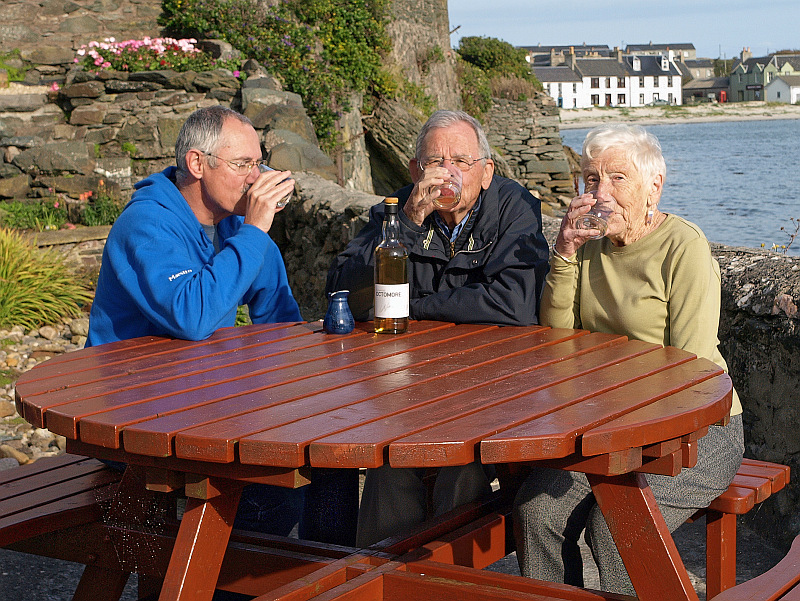 Sampling the long awaited tipple at Caladh Sona (
Sampling the long awaited tipple at Caladh Sona (

